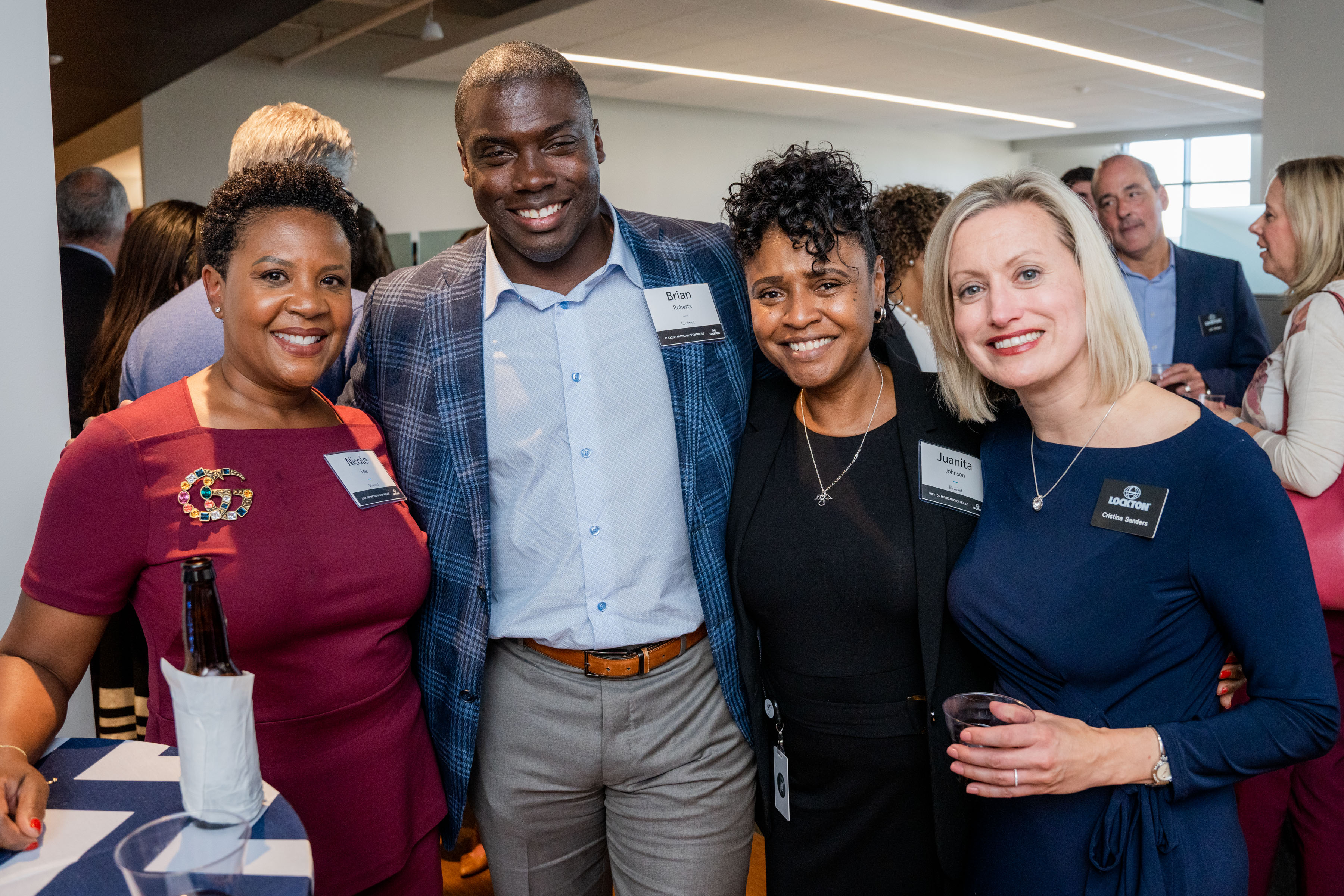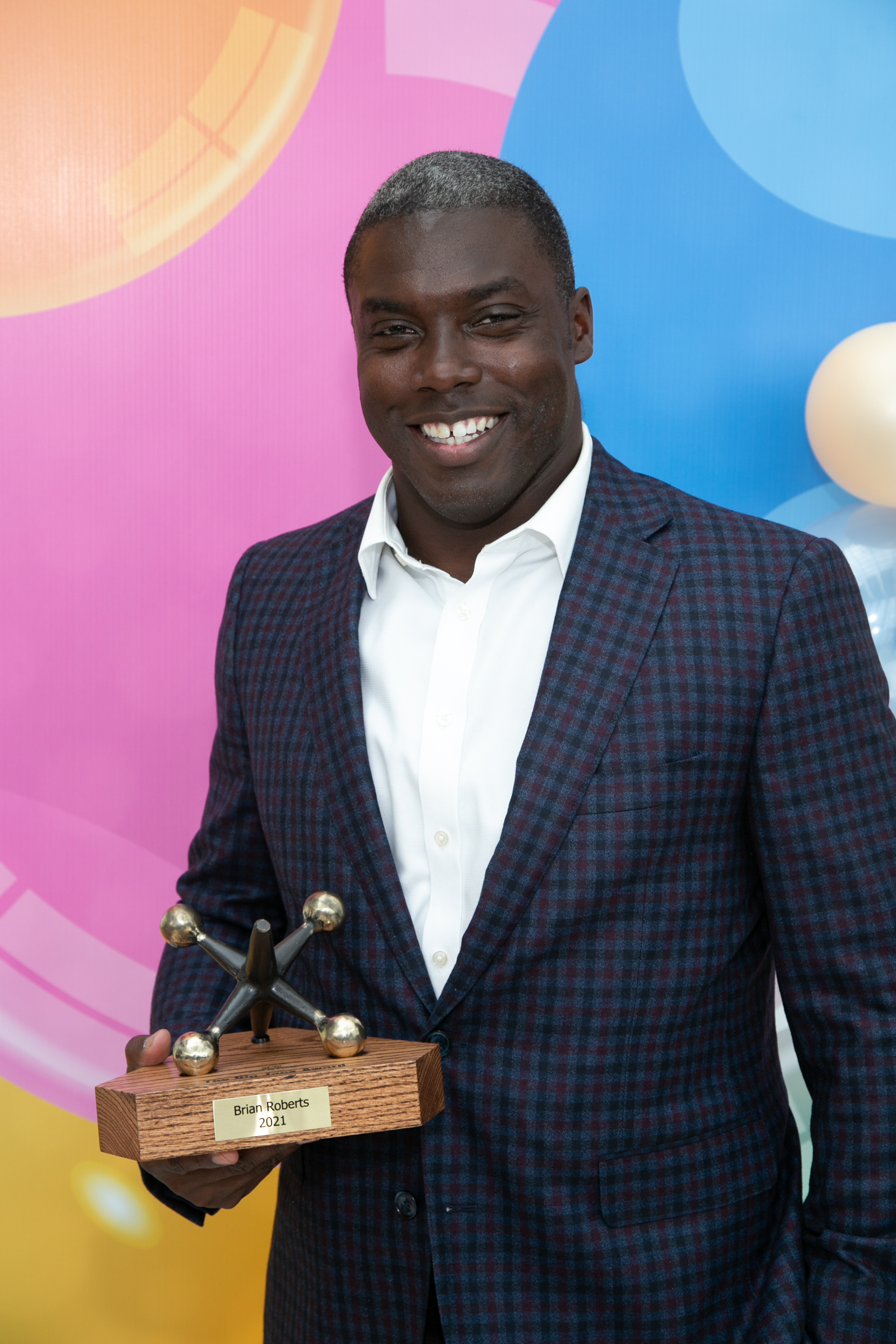Perspectives
August 23, 2023
My career, my story: Brian Roberts
Whether on the field or in the office, at his core, Brian Roberts is a coach.
After a successful soccer career that saw him start every game during his four-year career at Yale and playing professionally with the Kansas City Wizards, Brian switched to coaching in 2005 and never truly looked back.
The leadership, strategic thinking and management skills Brian learned on the pitch have since transferred to his current role at Lockton – Chief Operating Officer of the Midwest region. Since joining Lockton in 2009, Brian has held a variety of operations roles. But one thing remains – his intense focus on growth.
“I believe I’m here to coach and help people get better. And I get to coach at the highest level in this role,” said Brian.
At Lockton, your career is yours to customize, and Brian is one of many Associates across the globe bringing that value to life. Read more below, in Brian’s own words, about the career he’s built at Lockton.

When did you start working at Lockton?
In 2009, I was coaching Ron Lockton’s daughter in soccer. He told me it would be good for me if I joined Lockton. I didn’t know what it was at the time, but I eventually took him up on a conversation and took the offer.
At the time, I was looking for an organization that did things the right way. I had worked for a couple of places that said one thing but did the exact opposite. So, I was looking for a place that was true to itself and had the right spirit. For almost 15 years now, Lockton has been that place.
What were the catalysts for your changes in positions at Lockton?
The melody line of my career at Lockton is growth. I originally interviewed to be a Producer and decided that it wasn’t the right fit and so I joined the operations team. My starting title was Associate and for seven years there was no title movement. I worked on the operations team finding ways to help the business get better.
I then took a different role as Director of Operations. Shortly after, 2020 happened and all the anxiety around George Floyd and diversity came to the forefront. I made some noise about our DEI efforts. That led me to take on our Chief Diversity Officer role for two years until we could hire someone.
At the time, I was open to COO opportunities. When the opportunity to become COO of our Midwest region became available, I was honored to take it.
What did your time as Chief Diversity Officer tell you about Lockton?
My time as Chief Diversity Officer says a few things about Lockton. One, they listen to their people. Two, it would have been easy to go out and spend money to hire the best diversity resume out there. From a diversity standpoint, I couldn’t put my resume next to other candidates. The choice to hire someone internally initially was important. We needed someone who understood Lockton in that role first.
There’s a right way to make changes at Lockton and there’s a wrong way. Had we brought in someone from outside Lockton, they wouldn’t have worked in our decentralized model. Peter Clune’s choice to bring me in shows our culture drives us and has to stay in the forefront and that we remain who we are.
Why Lockton?
It’s the people. In each spot I’ve been in, I’ve been empowered to shape the job around who I am instead of trying to shape me into the square hole that’s there. I think that’s important. That’s something Lockton does well. There’s a ton of freedom in the framework here. You have a lot of freedom to make your career what you want.
How has Lockton supported you professionally?
I don’t even know how to quantify all that Lockton has done for me. I’m the first person in my family to go to college and I didn’t grow up in a corporate environment. I had to learn everything – from how to dress for a corporate job to a large amount of business acumen. I’ve had a ton of on-the-job mentorship. I have a lot of room to make mistakes and try things. Fortunately, a lot of those things have worked but a lot haven’t. There were things where they didn’t work, and leadership is good with taking those swings.
How has Lockton supported you personally?
Well, I married a Lockton Associate, so there’s that! There’s been a couple of moments where the organization has rallied around me or my family. They’ve invested in the whole person. Whether that be investing in specific training or development, or just saying “hey you need to take some time off,” whatever the case may be, they’re invested in the Associate.
How would you describe Lockton’s culture to someone outside of the company?
I like to describe our culture in this way: it’s like the best locker room I’ve ever been a part of. We are all competing to be better each and every day and pushing each other to be better. There’s healthy internal competition but that competition pales in comparison to us fighting the other team. We love to win and grow, and that’s important.
The best locker rooms create a culture so strong, that when someone who doesn’t fit or align with values enters it, the system spits them out. Our culture is getting stronger with what is and isn’t Lockton. Sometimes we trivialize culture and only talk about beer Fridays and parties – they’re great but not our culture. It’s about collaboration, autonomy and the growth of our people and business.
What is your “Lockton moment”?
I don’t have one moment. I often think about this … if I had to say something, I would say thank you to Ron [Lockton]. There aren’t that many companies that recruit a black soccer coach off the field, who majored in biology and doesn’t know anything about insurance but can bring him into the company and become a C-level executive. So, it’s not a moment, but the opportunity provided gives a great story.
What has surprised you most about working at Lockton?
The lack of rules always surprises me and makes me happy. People want to legislate behavior. You see in the news that when things don’t go well, we make a new rule or law. That’s proven not to work. We are a $3B company and have resisted the temptation to over-structure. We give our people freedom and autonomy, and it’s surprising we’ve been able to stay that true to who we are. I’d definitely add that to the list of reasons why I stay here.
What advice would you give to someone considering a career at Lockton?
It takes you two years to become Lockton smart. We’re a different company and you must accept that as you come in. You need to reserve judgment and let it come to you. We are a wonderfully weird organization.
What does “You Belong at Lockton" mean to you?
You’re welcome at Lockton. If there was an ellipsis, I’d finish the sentence with “You Belong at Lockton if you’re ready to be the best version of yourself.” If you’re not, then you don’t belong at Lockton. You’ve got to be willing to push and extend yourself if you really want to get the most out of working here.

Share
Work With Us
At Lockton, we believe you deserve a career that’s just as exceptional as you are. If this sounds like you, just imagine what we could do together.
Browse jobs